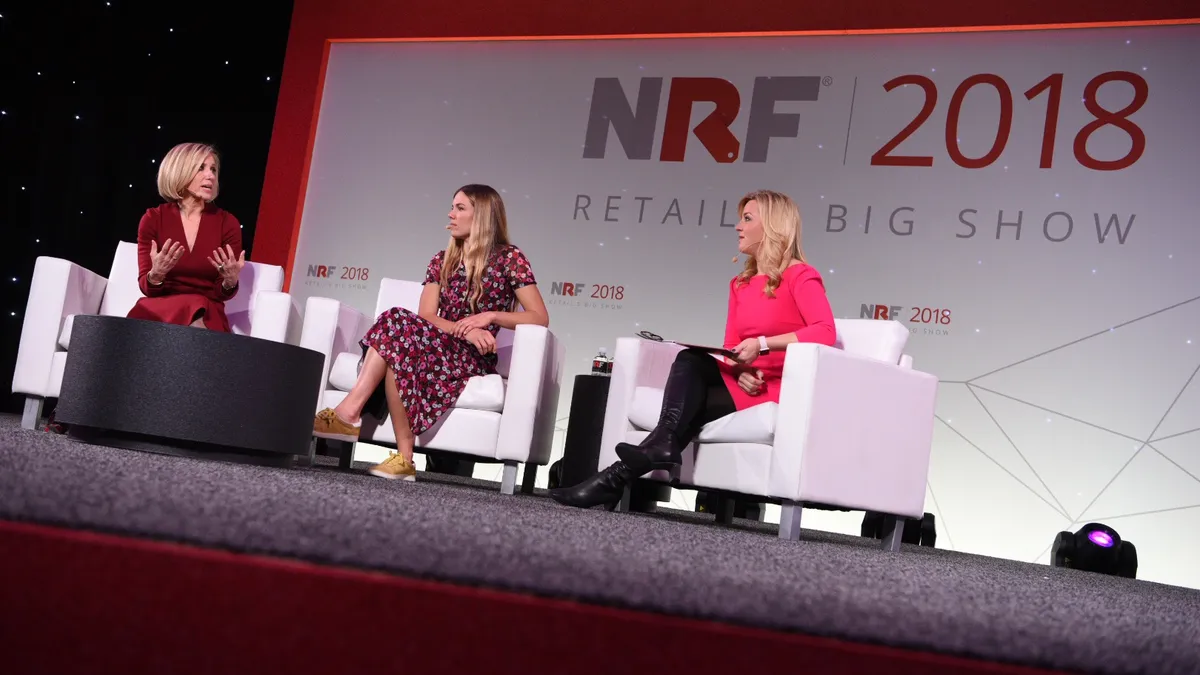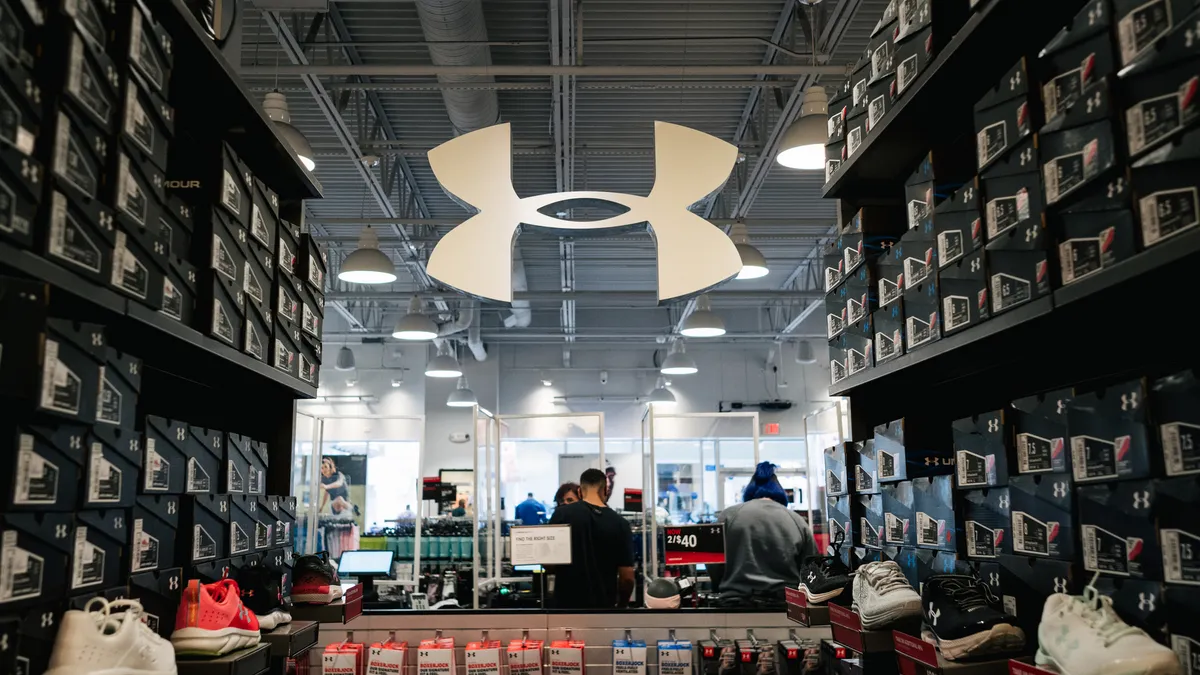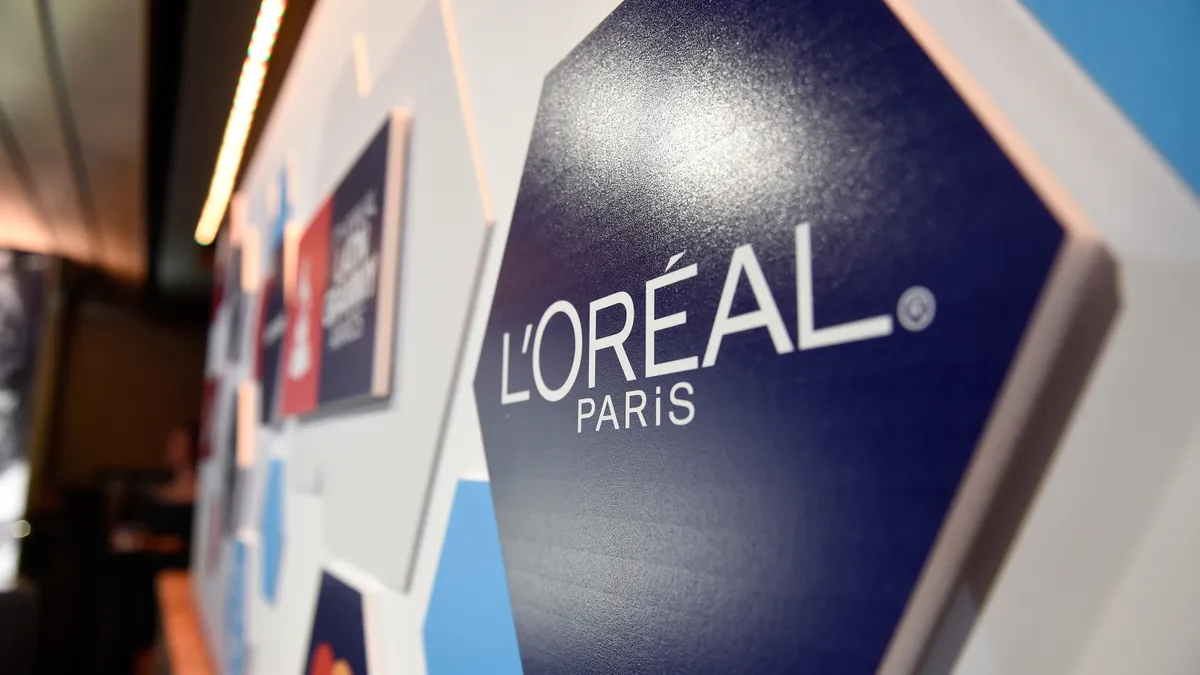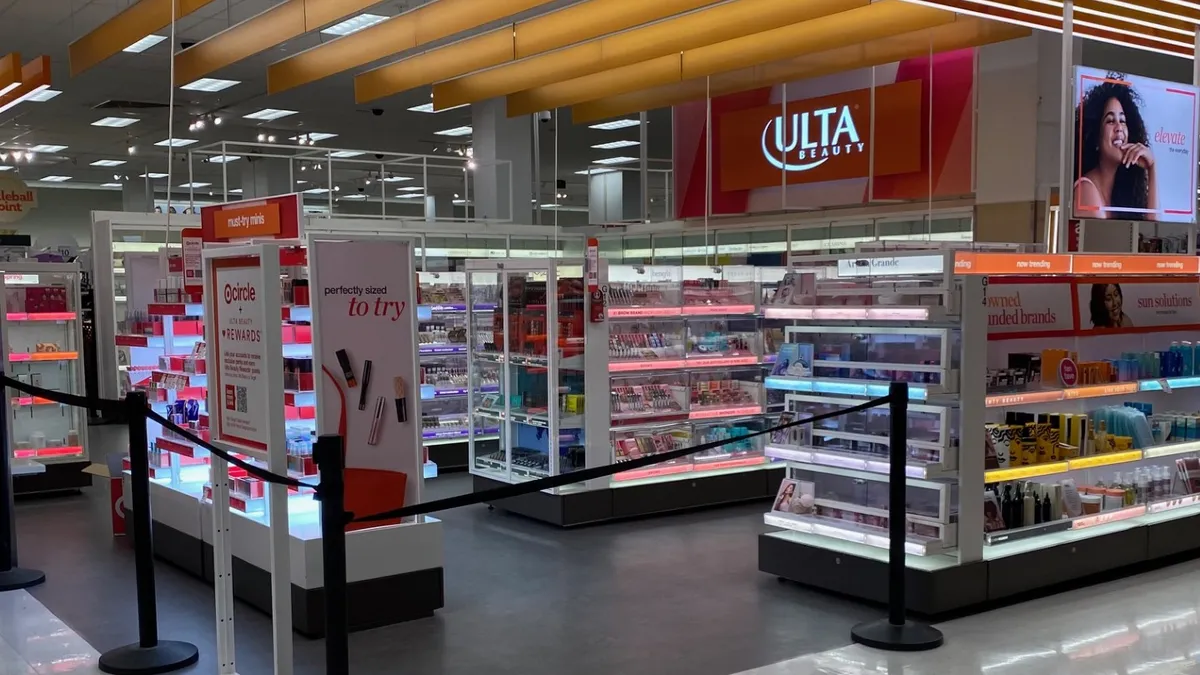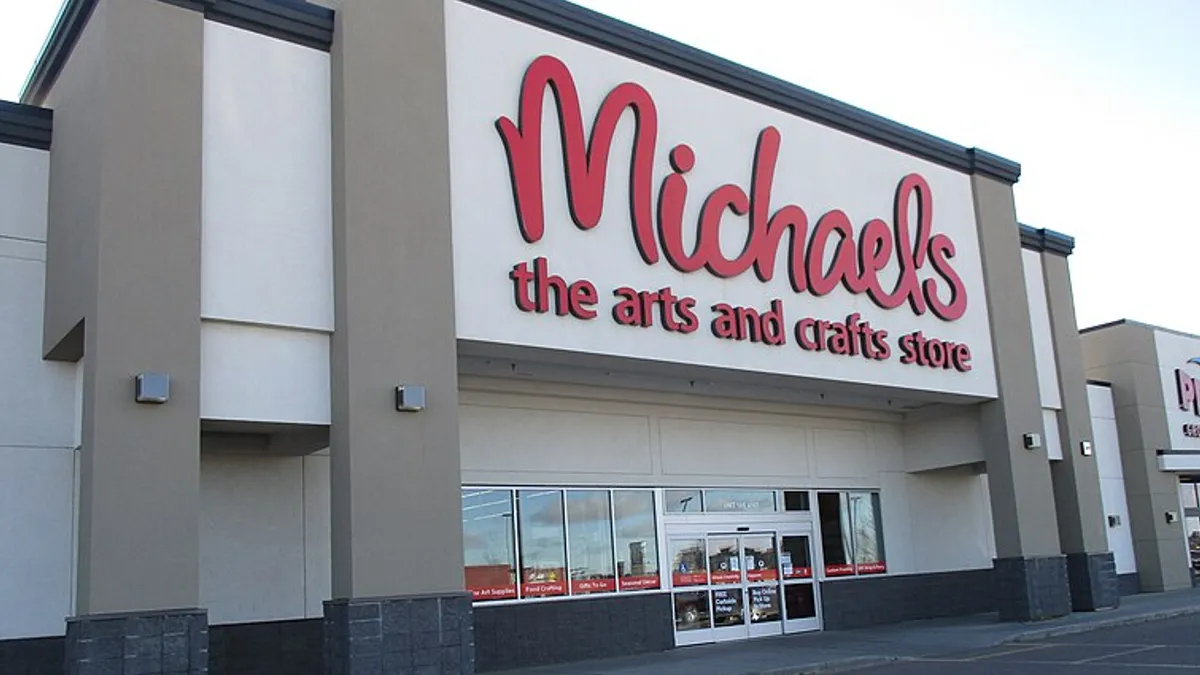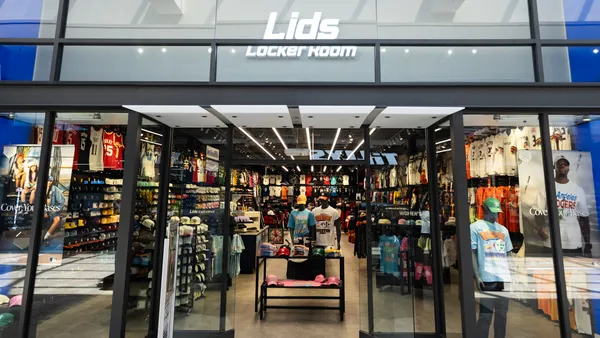NEW YORK — Customer acquisition is about much more than just discounting these days. And that concept was front and center for retailers at NRF's Big Show this week. Especially as younger consumers step up to the (shopping) plate, forming emotional, more personal connections with them is becoming increasingly important.
Millennials are actually more likely to purchase from a brand they feel they can trust and Gen Z's are also looking for more engagement with the brands they care about. From young retailers like Outdoor Voices to more traditional merchants such as The Home Depot, making moves that resonate with customers and go beyond just sales announcements is key to gaining a loyal following.
For Tyler Haney, CEO and founder of Outdoor Voices, social media (and specifically Instagram) is a big part of forming that more meaningful relationship — and the brand does so by talking to customers "like a best friend" and even soliciting advice, which they use for inspiration further down the line.
"I think that's super powerful when thinking about Nike, Under Armour and Lulu where product development, for example, is reserved for 15 guys in lab coats and it's only brought to you once it's fully baked," Haney said during a panel. "At OV, where we've found a lot of traction and people really want to get involved in the conversation is around product development."
These kinds of brand-consumer interactions are incredibly helpful in forming brand loyalty, according to Haney, but it's not as easy as asking for advice and then ignoring customer responses. A key component at Outdoor Voices is reaction time — making sure that customers feel like they're able to have a conversation with the brand if they want to — and that kind of fluid relationship can have serious benefits.
"What Outdoor Voices does, and there are some other companies on Instagram that do this particularly well, is taking their customers and turning their customers into their primary influencers [and] marketers," Instagram COO Marne Levine said during the same panel, "and when you can do that, and you can engage your community and do that successfully, that is the best kind of marketing that there is. Because these are no longer just people who are influencers somewhere else, they are influencing other people because they love the products themselves."
While social media is, obviously, becoming a bigger part of the brand-consumer relationship, retailers are also currying favor by championing social issues or — quite frankly — just using their platform to do the right thing in bad situations. The demand for this kind of activism is growing: 55% of Gen Zers choose brands specifically because they're socially responsible or eco-friendly and 66% of consumers want retailers to take a stand on important political issues.
Gallery Furniture's Jim McIngvale, who used his stores in Texas to provide shelter for hundreds during Hurricane Harvey, sees social responsibility as a required component of retail — and has seen a lot of positive reactions from customers as a result.
"People said it was miraculous what I did, but to me, what was miraculous was that people thought it was a big deal," McIngvale said during a panel on social responsibility. "I mean, what else am I gonna do? My people are drowning."
McIngvale noted a definite increase in customers after the hurricane passed and, in particular, millennial customers, who wanted to shop with him purely because of the values his business lived by during the hurricane. He noted that there were "a thousand people a day" who told him, "we're here because of what you did during Hurricane Harvey." That more than made up for the money he lost.
"We can always make the money back but you can't save peoples' lives but once," McIngvale said, noting that all retailers should try to help out their communities, no matter the cost to themselves.
And it's not just natural disasters that are calling retailers to action — the Home Depot, for example, is actively involved in finding housing for veterans. Importantly, that's a charity that resonates with the brand's message and is more likely, as a result, to resonate with customers — similarly to Patagonia's recent efforts on environmentalist causes. While that's Home Depot's long-term charity work, they're also prepared to help out when disaster strikes, Marc Brown, senior vice president of store operations at Home Depot, said on the panel.
"There's a period of time where the business part doesn't matter because you've got to get things back to normal for that community, and that includes your associates," he said. "[I]t's the only way to do business if you're going to be in it for the long haul."



